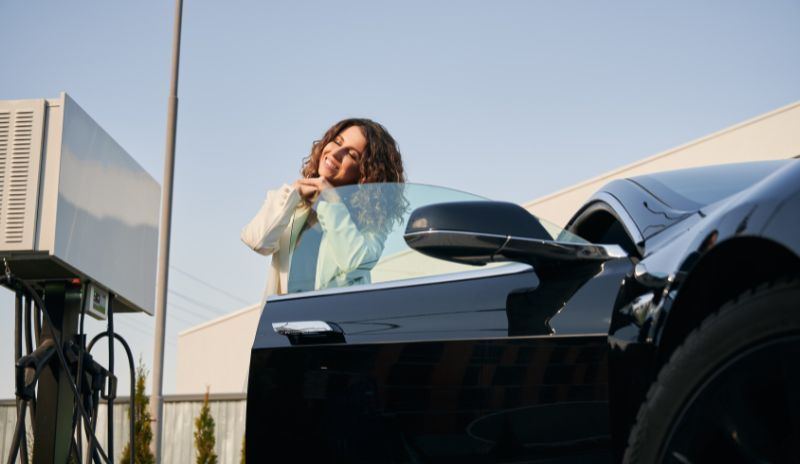The True Cost of Insuring an Exotic Car (And What Drives It)
See How We're Different
or call us: (214) 253-0570
Owning an exotic car is often seen as a symbol of success and a passion for high-performance vehicles. However, the allure of these magnificent machines comes with a significant financial commitment, particularly when it comes to insurance. Understanding the true cost of insuring an exotic car requires a deep dive into various factors that influence premiums, coverage options, and the unique risks associated with these high-value vehicles.
Understanding Exotic Car Insurance
Exotic car insurance is not just a simple extension of standard auto insurance. It is a specialized form of coverage designed to protect high-value vehicles that often come with unique needs and risks. The insurance market for exotic cars is tailored to address the specific characteristics of these vehicles, including their performance capabilities, rarity, and depreciation rates.
What Defines an Exotic Car?
The term "exotic car" typically refers to high-performance vehicles that are rare, luxurious, and often expensive. These cars are not just about speed; they represent a blend of craftsmanship, technology, and prestige. Examples include brands like Ferrari, Lamborghini, Bugatti, and McLaren. The defining features of an exotic car often include:
- Performance: Exotic cars usually have powerful engines, advanced aerodynamics, and superior handling capabilities.
- Rarity: Many exotic cars are produced in limited quantities, making them more exclusive and desirable.
- Luxury: These vehicles often come equipped with high-end materials, cutting-edge technology, and bespoke options that enhance the driving experience.
Why Standard Auto Insurance Isn’t Enough
Standard auto insurance policies are designed for everyday vehicles and may not provide adequate coverage for exotic cars. The unique aspects of exotic cars, such as their high market value and specialized repair needs, require policies that cater specifically to these vehicles. For instance, standard policies may not cover the full replacement cost in the event of a total loss, leaving owners underinsured.
Additionally, exotic cars often have higher repair costs due to the specialized parts and labor required. This means that a standard policy might not offer the necessary protection against the financial risks associated with owning such a vehicle. Furthermore, many exotic car owners participate in track days or other high-performance driving events, which can further complicate insurance needs. Standard policies typically do not cover damages incurred during these activities, making it crucial for owners to seek out insurers that understand the lifestyle and usage patterns of exotic car enthusiasts.
Moreover, the value of exotic cars can fluctuate significantly based on market trends, rarity, and condition. This volatility necessitates a more dynamic approach to insurance, where policies can adjust to reflect the current market value of the vehicle. Some specialized insurers even offer agreed value coverage, ensuring that the owner receives a predetermined amount in the event of a total loss, thus safeguarding their investment against depreciation and market shifts.
Factors Influencing Insurance Premiums
The cost of insuring an exotic car can vary widely based on several factors. Understanding these elements can help potential owners gauge what to expect when it comes to insurance premiums.
Vehicle Value and Type
One of the most significant factors influencing insurance premiums is the value of the vehicle itself. Exotic cars can range from hundreds of thousands to millions of dollars, and the higher the value, the higher the insurance cost. Additionally, the type of exotic car plays a crucial role; for example, a limited-edition model from a prestigious manufacturer will typically command a higher premium than a more common exotic vehicle. The rarity of the model can also affect premiums, as insurers may consider the difficulty of replacing such a vehicle in the event of a total loss. Furthermore, the performance capabilities of the car, including its horsepower and top speed, can lead to increased premiums, as high-performance vehicles are often associated with a greater likelihood of accidents.
Driving History and Experience
Insurance companies often consider the driving history and experience of the owner when determining premiums. A driver with a clean record and years of experience may receive lower rates compared to someone with a history of accidents or traffic violations. Additionally, some insurers may offer discounts for members of exclusive car clubs or organizations, recognizing the commitment to responsible ownership. The age of the driver can also play a role; younger drivers, particularly those under 25, may face higher premiums due to statistical data indicating they are more likely to be involved in accidents. Conversely, seasoned drivers with a long history of safe driving may qualify for loyalty discounts, further reducing their insurance costs.
Location and Usage
The location where the car is stored and primarily driven also impacts insurance costs. Urban areas with higher traffic congestion and crime rates typically have higher premiums due to the increased risk of accidents and theft. Furthermore, how the car is used—whether for daily driving, occasional pleasure, or track days—can also influence the cost. For instance, cars used primarily for racing may require specialized coverage that can be more expensive. Additionally, the climate of the area can affect premiums; regions prone to severe weather events, such as hurricanes or hailstorms, may see higher rates due to the increased risk of damage. Insurers may also take into account the local infrastructure, including the availability of repair shops and parts for exotic vehicles, which can impact the overall risk assessment and subsequent premium calculations.
Types of Coverage Available
When insuring an exotic car, it’s essential to understand the various types of coverage available. Exotic car insurance policies can be customized to meet the unique needs of the vehicle and its owner. Given the significant investment that these vehicles represent, having a comprehensive understanding of coverage options can help owners make informed decisions about their insurance needs.
Agreed Value Coverage
Agreed value coverage is a popular option for exotic car owners. This type of coverage ensures that in the event of a total loss, the owner receives a pre-determined amount that reflects the car's market value at the time the policy was written. This is particularly important for exotic cars, as their values can fluctuate significantly based on market demand and rarity. Owners should regularly review and update the agreed value to ensure it accurately reflects any modifications or enhancements made to the vehicle, as these can significantly increase its worth over time.
Comprehensive and Collision Coverage
Comprehensive coverage protects against non-collision-related incidents, such as theft, vandalism, or natural disasters. Collision coverage, on the other hand, covers damage resulting from accidents, regardless of fault. Both types of coverage are essential for exotic car owners, as the cost of repairs can be exorbitant. For instance, specialized parts and labor for high-performance vehicles can often exceed standard repair costs, making comprehensive and collision coverage vital for financial protection. Additionally, some policies may offer unique features like roadside assistance or rental reimbursement, which can be invaluable for owners who rely on their exotic cars for daily driving or special events.
Liability Coverage
Liability coverage is required by law in most states and protects the policyholder against claims made by others for bodily injury or property damage. For exotic car owners, it’s crucial to carry higher liability limits, as the potential costs associated with accidents involving high-value vehicles can be substantial. Given the visibility and attention that exotic cars attract, owners may also want to consider umbrella liability policies that provide additional coverage beyond standard limits. This can offer peace of mind, especially in scenarios where an accident could lead to significant legal claims or settlements, ensuring that the owner’s assets are well protected.
The Impact of Modifications on Insurance Costs
Many exotic car owners choose to modify their vehicles to enhance performance or aesthetics. However, these modifications can have a significant impact on insurance premiums.
Performance Modifications
Upgrades such as enhanced engines, suspension systems, or brake systems can increase the car's value and performance capabilities. While these modifications may improve the driving experience, they can also lead to higher insurance premiums due to the increased risk of accidents and the potential for higher repair costs.
Moreover, performance modifications often attract attention from law enforcement and insurance companies alike. For instance, a car equipped with a turbocharged engine or a high-performance exhaust system may be perceived as a target for reckless driving or street racing. This perception can further escalate insurance costs, as insurers may categorize such vehicles as higher-risk. Owners should be aware that some insurers might even require a specialized policy to cover these modifications, which can come with its own set of limitations and higher premiums.
Aesthetic Modifications
Modifications that enhance the car's appearance, such as custom paint jobs or aftermarket body kits, can also affect insurance costs. Insurers may view these changes as increasing the vehicle's overall value, which could lead to higher premiums. Additionally, some modifications may not be covered under standard policies, necessitating a review of coverage options.
Furthermore, aesthetic modifications can influence the likelihood of theft, as unique designs and custom features may make a car more appealing to potential thieves. Insurance companies often factor in the theft rate of modified vehicles when calculating premiums. As a result, owners may find that their insurance costs rise not only due to the increased value of the car but also because of the heightened risk associated with its distinctive appearance. It’s advisable for owners to document all modifications thoroughly and discuss them with their insurance agents to ensure adequate coverage and avoid any surprises in the event of a claim.
Finding the Right Insurance Provider
Choosing the right insurance provider for an exotic car is crucial to ensuring adequate coverage and peace of mind. Not all insurers specialize in exotic cars, so it's essential to do thorough research.
Specialized Exotic Car Insurance Companies
Several insurance companies specialize in providing coverage for exotic and high-performance vehicles. These insurers often have a better understanding of the unique risks and needs associated with exotic car ownership. They may offer tailored policies that include features like agreed value coverage, flexible mileage options, and access to specialized repair shops. Additionally, these companies often provide coverage for events such as track days or car shows, which are common among exotic car enthusiasts. This level of customization ensures that owners can enjoy their vehicles without the constant worry of inadequate insurance.
Comparing Quotes
When searching for insurance, it’s advisable to obtain quotes from multiple providers. Comparing quotes can reveal significant differences in premiums and coverage options. Additionally, potential policyholders should inquire about any discounts available, such as those for safe driving or membership in car clubs. Some insurers may also offer bundled policies that include coverage for multiple vehicles or additional assets, which can lead to further savings. It's important to carefully analyze the fine print of each quote to ensure that the coverage limits and exclusions align with your specific needs and driving habits.
Reading Reviews and Testimonials
Before committing to an insurance provider, it's beneficial to read reviews and testimonials from other exotic car owners. These insights can provide valuable information about the insurer's reputation, customer service, and claims handling process. A provider with a strong track record of supporting exotic car owners can make a significant difference in the overall insurance experience. Furthermore, engaging with online forums or social media groups dedicated to exotic car enthusiasts can yield firsthand accounts of experiences with various insurers, helping you make a more informed decision. Remember that the right insurance provider should not only offer competitive rates but also demonstrate a commitment to customer satisfaction and support during the claims process.
Managing Insurance Costs
Bundling Policies
Many insurance providers offer discounts for bundling multiple policies, such as home and auto insurance. By consolidating policies with the same insurer, exotic car owners may be able to reduce their overall insurance costs while ensuring comprehensive coverage.
Increasing Deductibles
Increasing deductibles can also lead to lower premiums. However, it’s essential to balance this decision with the potential out-of-pocket costs in the event of a claim. Owners should consider their financial situation and risk tolerance before opting for higher deductibles.
Participating in Driver Training Programs
Some insurers offer discounts for completing advanced driver training programs. These programs not only enhance driving skills but also demonstrate a commitment to safe driving practices, which can be beneficial when negotiating premiums.
The Future of Exotic Car Insurance
The landscape of exotic car insurance is continually evolving, driven by advancements in technology and changes in consumer behavior. As the automotive industry embraces electric and autonomous vehicles, insurance providers may need to adapt their policies to address these new realities.
Impact of Electric and Hybrid Exotic Cars
The rise of electric and hybrid exotic cars presents unique challenges and opportunities for insurers. While these vehicles often come with lower maintenance costs, their repair needs can be more complex due to specialized components. Insurers will need to assess how these changes impact premiums and coverage options.
Telematics and Usage-Based Insurance
Telematics technology, which tracks driving behavior, is becoming more prevalent in the insurance industry. Usage-based insurance models allow insurers to offer personalized premiums based on actual driving habits. This could lead to more competitive rates for responsible drivers of exotic cars, rewarding them for safe driving practices.
Conclusion
Insuring an exotic car is a complex process that requires careful consideration of various factors, including vehicle value, driving history, and coverage options. While the costs can be significant, understanding the nuances of exotic car insurance can empower owners to make informed decisions that protect their investment.
As the automotive landscape continues to evolve, staying informed about changes in the insurance market will be essential for exotic car enthusiasts. By choosing the right insurance provider and exploring available options, owners can enjoy their high-performance vehicles with confidence, knowing they are adequately protected.




